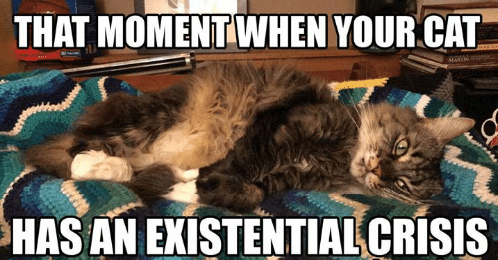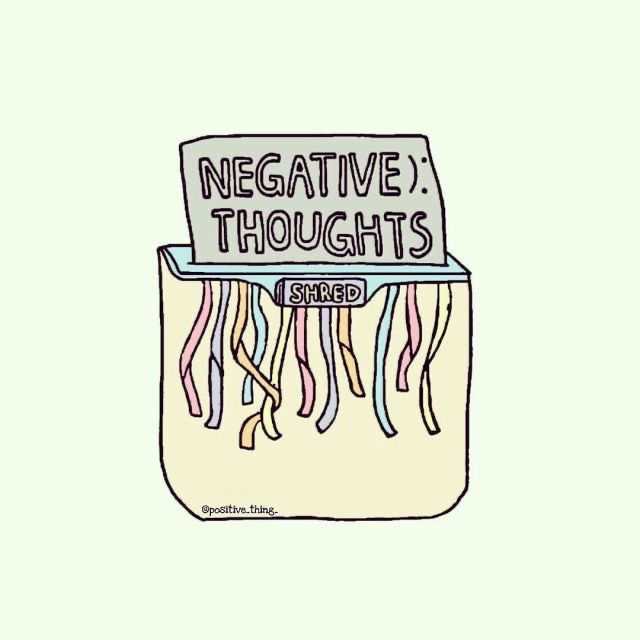Existential Therapy: The Art of Living
- Abi

- Feb 10, 2019
- 4 min read
Updated: Apr 5, 2019
What is existential therapy and could it be useful for you?
As part of my stage 2 counselling course, we’ve been learning about ‘Existential Therapy’.
“What the heck is that?!”, I hear you ask. Good question, I wondered the same.
You’ll probably be familiar with the melodramatic proclamation many of us have made at one point or another:
“I’m having an existential crisis!”
We say this, jokingly, or genuinely, when we suddenly find ourselves lost, questioning our purpose and the meaning of life.
The goals of existential therapy are not so far distinct from addressing what has become this cultural meme. Through reflection and exploration, therapist and client work together to come to terms with the dilemmas of living by rediscovering the client’s values, beliefs, purpose and meaning in life. In being founded on philosophy, this kind of therapy does not focus on personality or pathology, instead it moves away from the individual to focus on life itself. This view that people are “not ill but sick of life or clumsy at living” can be liberating in itself.
Existential therapy is founded on three basic assumptions:
1. “Life makes sense and people create the meaning of their world by their own attitude to life”

Self-fulfilling prophecies are quite a big deal in the existential approach. Basically, they suggest that if you believe something is going to happen, you’ll probably end up making it happen, consciously or unconsciously. With this in mind, existential therapy suggests people always possess the ability to create meaning and order, even amongst chaos and absurdity, so long as they believe in the persistent availability of a life which holds meaning and sense.
So, belief in one’s ability to create meaning + belief in a world which offers endless opportunities to create meaning = a life that makes sense!
2. “Human nature is intrinsically flexible”
What this rather convoluted quote implies is that people always possess the agency to retain a certain degree of control over how their life goes, through the way that they respond to what life throws at them. Acknowledging that there are ‘givens’ within life, that is, things that we can’t control, it assumes that whether those givens are good or bad, it is we who control how they influence us in how we respond.
“It is always possible to turn a situation to one’s advantage or disadvantage” (van Deurzen)
There are inherent possibilities to life as well as inevitable limitations, but when we respond to life’s limits with resilience and resoluteness we demonstrate an instinct for survival and therefore have a greater chance of living well.
3. “The boundaries of human living are set by a universal order”
Speaking of limitations, the existential approach lists several worldly boundaries which inhibit us from roaming completely freely. These are categorised under:
· Natural laws: basic physical and biological principles
· Social laws: the culture we live in
· Personal/ psychological laws: our own values and morals that form our identity
· Ethical/ spiritual laws: others’ values and morals, and the experiences outside of us that create our meaning.
“Freedom can only be assumed to the extent that one is aware of the necessary, the impossible and the desirable.” (van Deurzen)
Recognising the limits these laws enforce is fundamental in realising not just what is unattainable, but also all that is available to us.
So, who could benefit from existential therapy?
Existential therapy is designed for people trapped in a void of despair and futility. It is not suitable for those who simply want to be rid of a specific issue or symptom. Clients have to be invested in philosophical discovery, seeking understanding not treatment.
“No one can ever work from an existential perspective without a commitment to reaching an ever-greater understanding of human existence.” (van Deurzen)
Those who have suffered life’s limitations (death, loss, pain, failure) and come out on top, or come out at all, may, ironically, become better at surviving life, than those who have been kept safe from life’s horrors. It is therefore suggested that it is the latter person here who may find themselves requiring existential therapy.
Surprisingly, if you're someone who is afraid of change, existential therapy might be the perfect fit for you. As I’ve tried to emphasise in my past two posts, it is not always helpful to encourage a person to change. This is where existential therapy differs most from say, person-centred therapy. It doesn’t promote the egotistical short-term goal of self-development, or "compulsive self-improvement", as van Deurzen refers to it. It is not about changing, but about facing oneself and one’s relationship with the world. Initiating change for the sake of change by introducing a person with a new set of rules and ways of being can actually create even more chaos.
“Sooner or later she will find that her own actions create new problems which she will still be unable to solve if she does not face the principles of existence.” (van Deurzen)
The Existential approach also has some really interesting things to say about anxiety and what it is that causes so many people to be entrenched by this sensation of unease and fear. I'll be dedicating next week's post to exploring the various theories surrounding the cause of anxiety, along with discussing my own experiences with it.
I don't know about you, but I've found learning about existential therapy hugely thought-provoking and it has certainly challenged some of my previously held beliefs. I'd love to know what you make of this therapeutic approach. Do you think it is something you'd find helpful if you were in a crisis? Van Deurzen suggests existential therapy
“will not make life any easier, although it may make it easier to live” ...
At the end of the day, no therapy can prevent the perils of life coming our way, but existential therapy could certainly be a way of better equipping ourselves to face them.











Comments